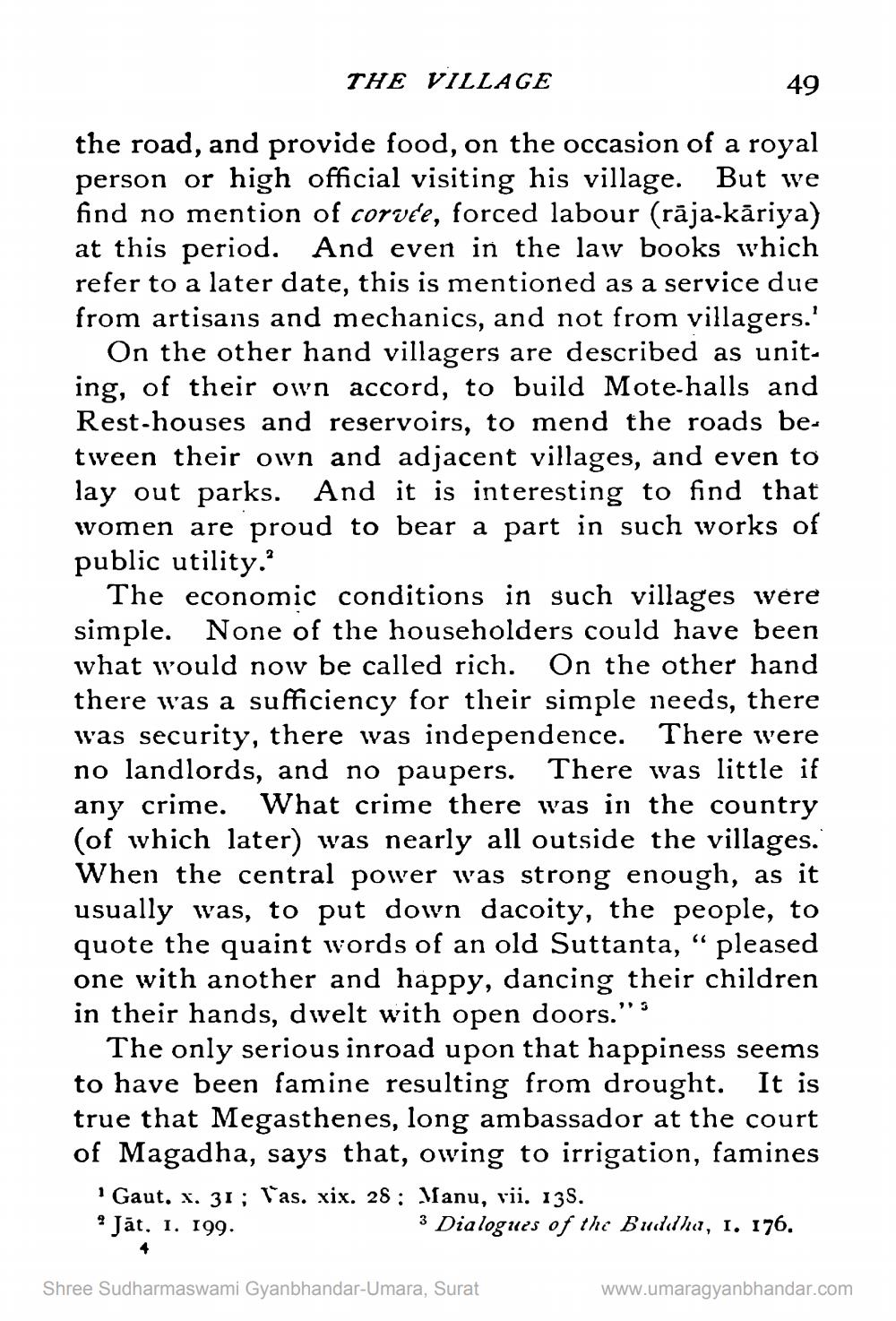________________
THE VILLAGE
49
the road, and provide food, on the occasion of a royal person or high official visiting his village. But we find no mention of corvée, forced labour (rāja-kāriya) at this period. And even in the law books which refer to a later date, this is mentioned as a service due from artisans and mechanics, and not from villagers.'
On the other hand villagers are described as uniting, of their own accord, to build Mote-halls and Rest-houses and reservoirs, to mend the roads between their own and adjacent villages, and even to lay out parks. And it is interesting to find that women are proud to bear a part in such works of public utility.'
The economic conditions in such villages were simple. None of the householders could have been what would now be called rich. On the other hand there was a sufficiency for their simple needs, there was security, there was independence. There were no landlords, and no paupers. There was little if any crime. What crime there was in the country (of which later) was nearly all outside the villages. When the central power was strong enough, as it usually was, to put down dacoity, the people, to quote the quaint words of an old Suttanta,“ pleased one with another and happy, dancing their children in their hands, dwelt with open doors." 3
The only serious inroad upon that happiness seems to have been famine resulting from drought. It is true that Megasthenes, long ambassador at the court of Magadha, says that, owing to irrigation, famines
Gaut. x. 31; Vas. xix. 28: Vanu, vii. 135. * Jāt, 1. 199.
3 Dialogues of the Buddha, 1. 176.
Shree Sudharmaswami Gyanbhandar-Umara, Surat
www.umaragyanbhandar.com




